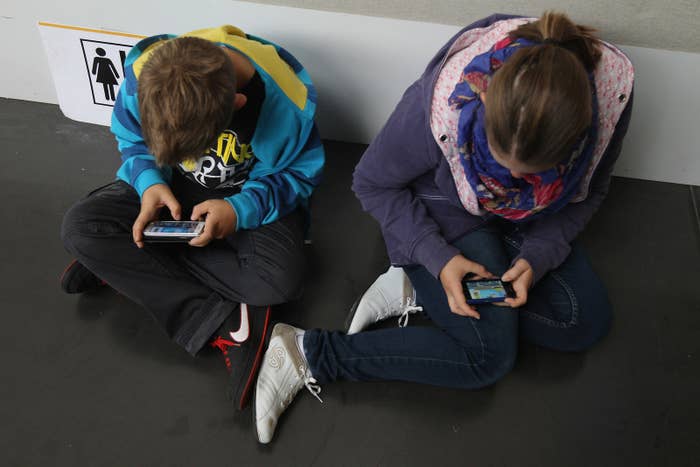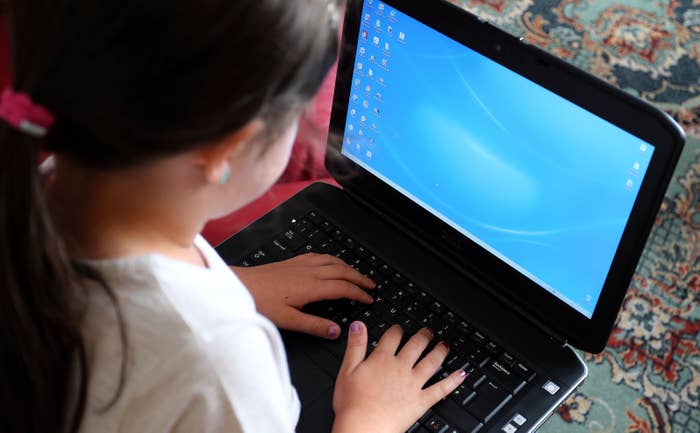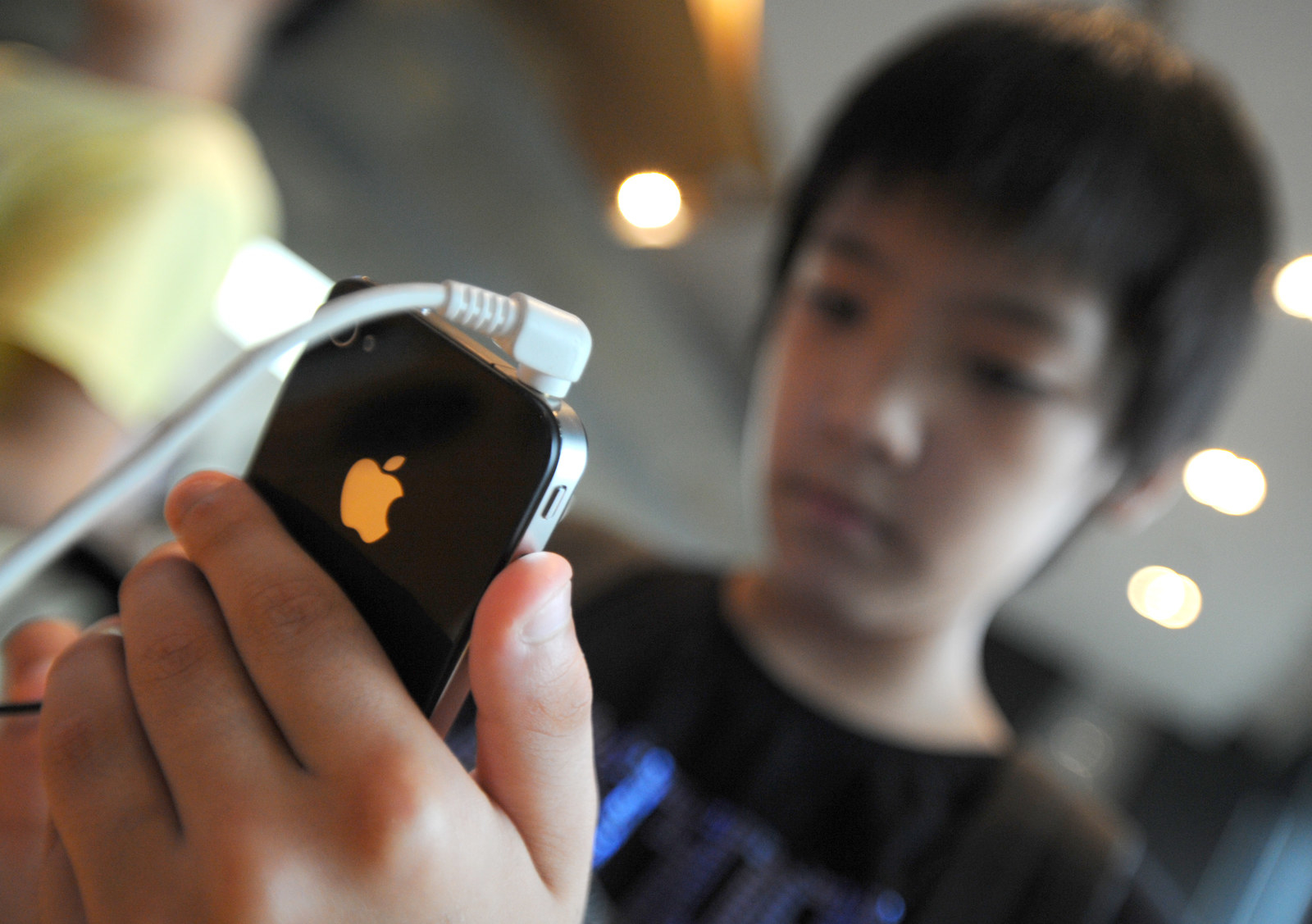
Parents and teachers need to educate children in how to manage their online presence before they go to secondary school, when their use of social media and its effects on their wellbeing hang on a "cliff edge", the children's commissioner for England has said.
The commissioner was launching a new report, out today, examining the effects of social media on 8- to-12-year-olds. It found that while younger children use social media in a playful, creative way – often to play games – this changes significantly as children’s social circles expand in year 7, when children are aged 11-12.
The report, Life in Likes, said that by secondary school (age 11-18), many children find social media hard to manage, becoming overdependent on likes and comments for social validation and increasingly anxious about their online image.
According to the report, children also worry that their parents will post pictures of them on social media without their consent and not listen if they ask for them to take photos down.

Although most social media platforms have an official minimum age of 13, research has suggested that three-quarters of 10- to-12-year-olds have some sort of social media account.
Researchers asked 32 children across the country about the impact social media had on them. Harry, 11, year 6, said: “If you don’t have designer and expensive things people will make fun of you.”
Bridie, 11, year 7, said: “I saw a pretty girl and everything she has I want, my aim is to be like her. I want her stuff, her white house and her MAC makeup. Seeing her makes me feel cosy.”
And Aaron, 11, year 7 said: “If I got 150 likes, I’d be like that’s pretty cool, it means they like you.”
Charities and youth workers have previously expressed similar concern about the additional pressure social media places on children growing up today.
Eliza Rebeiro, founder of Lives Not Knives, a grassroots organisation that has been working with young people in Croydon since 2007, told BuzzFeed News: "They don't understand that it's not real, it's really bad for their self-esteem," adding that teenagers delete pictures when they do not receive "enough" likes.
"I don't know how I would cope now, there's so much pressure," she said. "Pressure from friends to fit in, pressure from the media. How you should look – you at 14 need to be a gangster, wearing Moncler, pictures you see on Instagram. Or girls have pressure to have big boobs, a big bum, nice long hair.
"They have pressure to have money, designer things. And then pressure from parents to do well at school."
Nic Ford, a deputy headteacher, is an expert in educating children and parents on the potential pitfalls of social media who runs sessions for students and their carers at Bolton School in Greater Manchester.
He welcomed the commissioner's call for schools and parents to prepare children towards the end of primary years for the impact that social media may have on their lives.
"It's something we as a school have already recognised," he told BuzzFeed News. "We're trying to work quite proactively about that very issue – the whole self-esteem, deriving all their self-esteem through a fake identity on social media is a growing problem.
"I know children who will delete a post if it's not had enough likes – they're airbrushing their social media. This false reality, creating this artificial reality is definitely a big problem."
While Ford typically finds social media has the biggest impact once children reach year 9, when many hit puberty "and search for their identity", they are often given their own phone when they go to secondary school in year 7, which means they would benefit from education on social media before they leave primary school.

"I think there is a leap between junior and secondary," he said, "driven by a lot of parents giving children their first phone. Before they will have been using social media on their parent's phone or a shared family computer.
"They're able to have a much more unfiltered, unregulated existence. They might have their own social media profiles for the first time."
He told BuzzFeed News that while "we've become good" at educating children and parents "about predators and how to keep yourself safe", it's important also for young people and their carers to be aware of other ways in which social media can impact on their lives.
The sessions he runs discuss "the proliferation of social media in people's lives – how easy it is to be on multiple platforms and consistently under pressure to be seen in a certain way".
Ford said he also offers parents advice on the potential pitfalls posed by each platform – some of which many parents have never heard of – and what to look out for with each one. While teachers warn parents not to let their children have social media profiles under the age of 13, he said, many still do.
The school encourages parents not to let their children have a phone in the room with them at night, to give them a break from checking social media, he said.
Launching today's report, Anne Longfield, the children’s commissioner, said: “While social media clearly provides some great benefits to children, it is also exposing them to significant risks emotionally, particularly as they approach year 7. I am worried that many children are starting secondary school ill-equipped to cope with the sudden demands of social media as their world expands. It is also clear that social media companies are still not doing enough to stop under-13s using their platforms in the first place.
“I want to see children living healthy digital lives. That means parents engaging more with what their children are doing online. Just because a child has learnt the safety messages at primary school does not mean they are prepared for all the challenges that social media will present. It means a bigger role for schools in making sure children are prepared for the emotional demands of social media. And it means social media companies need to take more responsibility."
She added: “Failing to do so risks leaving a generation of children growing up chasing ‘likes’ to make them feel happy, worried about their appearance and image as a result of the unrealistic lifestyles they follow on platforms like Instagram and Snapchat, and increasingly anxious about switching off due to the constant demands of social media.”
